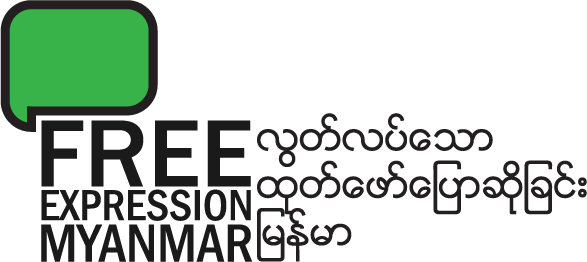Category: Law ဥပဒ
-
Official Secrets Act
The Official Secrets Act was created by the British colonial government in 1923 to criminalise the sharing of almost any kind of information held by the government. The government can…
-
Electronic Transactions Law
The Electronic Transactions Law was created under the military government to regulate the internet and control internet users using harsh criminal punishments. The Electronic Transactions Law includes illegitimate criminal punishments…
-
Broadcasting Law — ရုပ်မြင်သံကြားနှင့် အသံထုတ်လွှင့်ခြင်းဆိုင်ရာ ဥပဒေ
The Broadcasting Law was superficially amended in 2018. The amendment failed to protect freedom of expression, and reflects the government’s lack of open consultation. Download as PDF >> The Amendment…
-
Printing and Publishing Law
The Printing and Publishing Law is a licensing law for the print media. Democracies do not licence the print media because licences are easily abused by governments. Printers and publishers…
-
Constitution — ဖွဲ့စည်းပုံ
The Constitution does not fully protect the right to freedom of expression. Articles 354 (liberty of expression and publication) and 365 (freedom of artistic expression) do not comply with international…
-
News Media Law — သတင်းမီဒီယာ ဥပဒေ
The News Media Law was created partly to protect journalists in a country with no constitutional guarantee for media freedom and no government will to amend the many laws criminalising…
-
Telecommunications Law — ဆက်သွယ်ရေးဥပဒေ
The Telecommunications Law was created to regulate previously blocked networks and services but keeps many undemocratic rules with a non-independent government regulator, allowing communications to be closely monitored and users…
-
Penal Code — ရာဇသတ်ကြီး
The Penal Code (aka Criminal Code) includes many articles on defamation, sedition, offense, religion and incitement that were created under a colonial government and are not suitable for a democracy. The…
